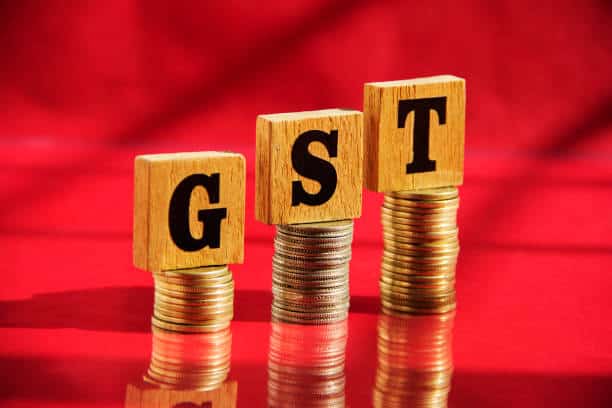
What is GST Auditing? A Comprehensive Guide
In the complex world of taxation, Goods and Services Tax (GST) has emerged as a transformative force, streamlining indirect taxes across many countries. As with any tax system, compliance and accuracy are paramount. This is where GST auditing comes into play. But what exactly is GST auditing, and why is it so crucial? Let's dive deep into this important aspect of tax compliance.
Understanding GST Auditing
GST auditing is a systematic examination of records, returns, and other documents maintained by a GST-registered person. It's designed to verify the correctness of turnover declared, taxes paid, refund claimed, and input tax credit availed. The primary goal of a GST audit is to ensure that businesses are complying with GST laws and regulations accurately.
Types of GST Audits
There are typically three main types of GST audits:
- Self-Audit: This is conducted by the taxpayer themselves or through appointed professionals. It's a proactive approach to ensure compliance before filing annual returns.
- General Audit: Conducted by tax authorities based on certain risk parameters or random selection.
- Special Audit: Ordered by tax authorities if they suspect undervaluation or have concerns about the complexity of a case.
Who Needs to Undergo GST Audit?
The requirement for GST audit varies depending on the country's specific laws. For instance, in India:
- Businesses with an annual turnover exceeding ₹2 crore are required to get their accounts audited by a chartered accountant or a cost accountant.
- Special audits can be ordered for any registered person, regardless of turnover, if authorities deem it necessary.
It's crucial to check the specific requirements in your jurisdiction, as thresholds and conditions can vary.
The GST Audit Process
While the exact process may vary, a typical GST audit involves the following steps:
- Preparation: Gathering all relevant documents, including GST returns, financial statements, input tax credit records, and more.
- Reconciliation: Comparing GST returns with financial records to ensure consistency.
- Verification: Checking the correctness of input tax credits, output tax liability, and any exemptions or zero-rated supplies claimed.
- Identifying Discrepancies: Noting any mismatches or errors in reporting or tax calculation.
- Reporting: Preparing a detailed audit report highlighting findings and recommendations.
- Filing: Submitting the audit report along with audited annual accounts and reconciliation statement to tax authorities.
Key Areas Examined in a GST Audit
During a GST audit, several critical areas are scrutinized:
- Turnover Reconciliation: Ensuring that the turnover declared in GST returns matches financial statements.
- Input Tax Credit: Verifying the eligibility and correctness of input tax credits claimed.
- Output Tax Liability: Checking if output tax has been correctly calculated and paid.
- Reverse Charge Mechanism: Ensuring compliance with reverse charge provisions where applicable.
- Exemptions and Zero-Rated Supplies: Verifying the correctness of any exemptions or zero-rated supplies claimed.
- HSN Classification: Checking if goods and services have been correctly classified under the Harmonized System of Nomenclature (HSN).
- Refunds: Examining the validity of any refund claims made.
- E-way Bills: Ensuring compliance with e-way bill requirements for the movement of goods.
Importance of GST Auditing
GST auditing serves several crucial purposes:
- Ensuring Compliance: It helps businesses stay compliant with complex GST laws and regulations.
- Identifying Errors: Audits can uncover errors or discrepancies in reporting, allowing for timely corrections.
- Preventing Penalties: By identifying and rectifying issues proactively, businesses can avoid hefty penalties for non-compliance.
- Improving Financial Health: The audit process often reveals areas where businesses can optimize their tax strategies and improve financial management.
- Building Credibility: Regular audits demonstrate a commitment to compliance, which can be beneficial in dealings with tax authorities and business partners.
Challenges in GST Auditing
While GST auditing is crucial, it comes with its set of challenges:
- Complexity of GST Laws: GST regulations can be complex and subject to frequent changes, requiring auditors to stay constantly updated.
- Data Volume: With GST being a transaction-based tax, auditors often have to deal with large volumes of data.
- Technology Dependence: GST systems are largely technology-driven, requiring auditors to be proficient in relevant software and tools.
- Reconciliation Issues: Discrepancies between different sets of records (e.g., financial statements vs. GST returns) can be challenging to reconcile.
- Industry-Specific Nuances: Different industries may have specific GST provisions, requiring specialized knowledge.
Best Practices for GST Auditing
To ensure an effective GST audit, consider the following best practices:
- Stay Updated: Keep abreast of the latest GST laws, notifications, and circulars.
- Maintain Proper Records: Ensure all GST-related documents and records are properly maintained and easily accessible.
- Regular Reconciliation: Perform regular reconciliations between GST returns and financial records to identify discrepancies early.
- Leverage Technology: Use GST compliance software to automate calculations and reduce errors.
- Seek Expert Help: When in doubt, consult with GST experts or chartered accountants.
- Internal Controls: Implement strong internal controls to ensure GST compliance throughout the year.
- Training: Provide regular training to staff involved in GST compliance to keep them updated on regulations and best practices.
Conclusion
GST auditing is a critical process that ensures businesses are complying with GST laws accurately and efficiently. While it can be complex and challenging, the benefits of maintaining GST compliance far outweigh the efforts involved. Regular audits not only help in avoiding penalties but also in optimizing tax strategies and improving overall financial health.
For businesses operating under a GST regime, understanding the nuances of GST auditing is crucial. Whether you're conducting a self-audit or preparing for an audit by tax authorities, a thorough understanding of the process, coupled with meticulous record-keeping and regular reconciliations, can make the audit process smoother and more beneficial.
Remember, GST compliance is not just about avoiding penalties; it's about building a robust, transparent, and efficient financial system for your business. Embrace GST auditing as a tool for improvement and compliance, and you'll find it contributes significantly to your business's financial well-being and credibility.

Author : Uttam Bisht
08 February, 2024 | 09:46 PM
Mr. Uttam Bisht is a partner with the Delhi Branch of the firm. He has more than 8 years of experience and specializes in Statutory Audit. Expertise in Tax audit of various enterprises. Extpertise internal audit of Private enterprises. Audit planning through business understanding, preliminary analytical procedures, determining materiality levels, and preparation of audit program and pre-audit checklist . He is well conversant with the auditing standards issued by ICAI. .
Tags
Recent Blogs

06 February, 2026 | 07:28 AM
Decoding Union Budget 2026

13 May, 2025 | 07:42 AM
Top 5 Tips for Filing ITR 4 Easily

08 May, 2025 | 01:09 AM
Simple Guide to Filing ITR1 Sahaj

30 April, 2025 | 05:51 AM
Mortgage Rates Today

26 April, 2025 | 10:23 PM
How Bank's are scamming you - Fixed vs Reducing Rate

02 March, 2025 | 05:32 AM
15 Benefits of ITR Filing
Popular Blogs

14 February, 2024 | 11:43 PM
Top 15 ITR Filing Documents

21 March, 2024 | 12:29 AM
The Road to Financial Freedom: Leveraging Tax Services for Long-Term Success

27 February, 2024 | 11:20 PM
Why Filing ITR with No Income is Smart

14 February, 2024 | 11:39 PM
21 Ways to Save Tax From Salary

10 October, 2024 | 10:15 PM
Exploring the 15 Financial Websites You Should Bookmark Right Now

14 February, 2024 | 11:35 PM
